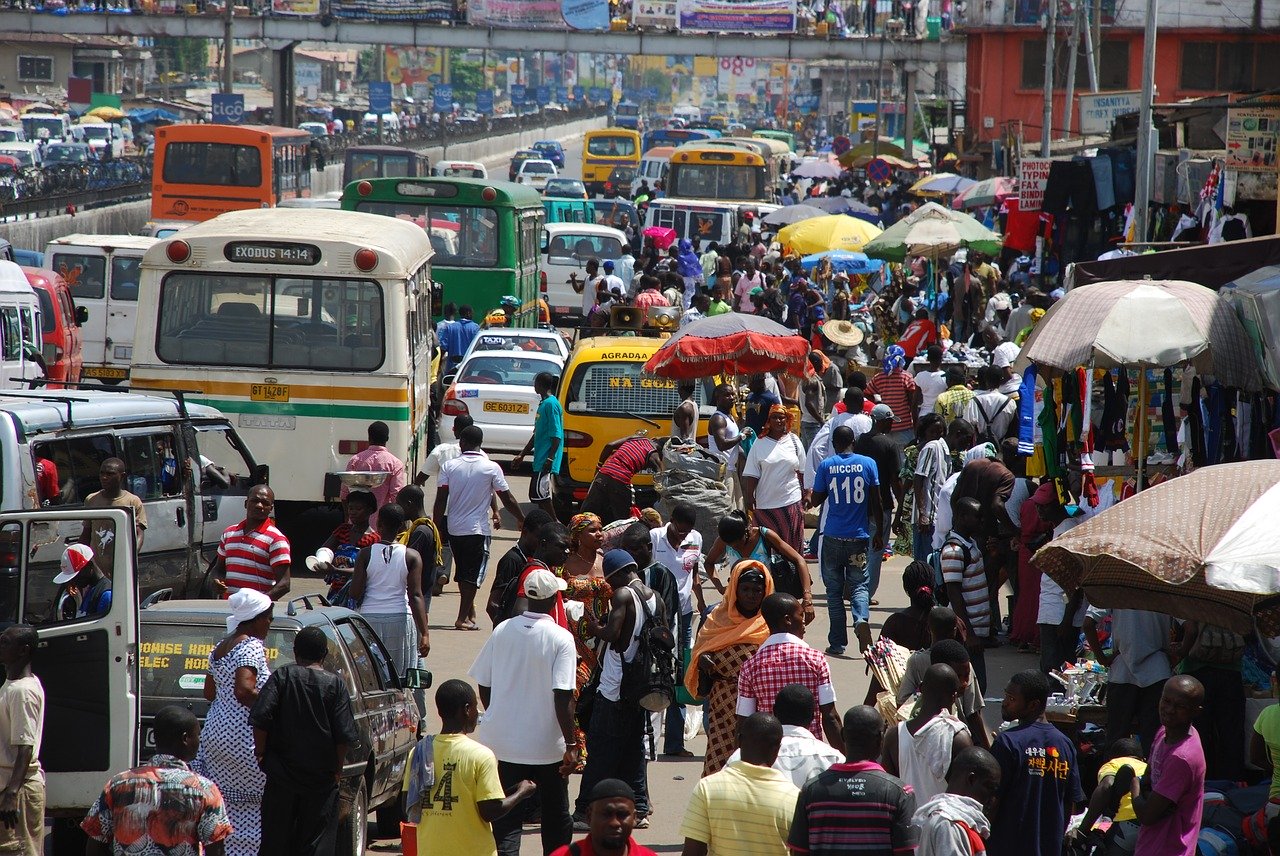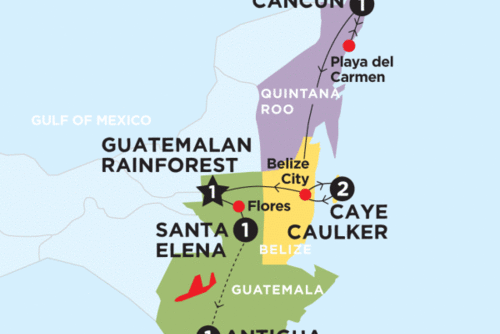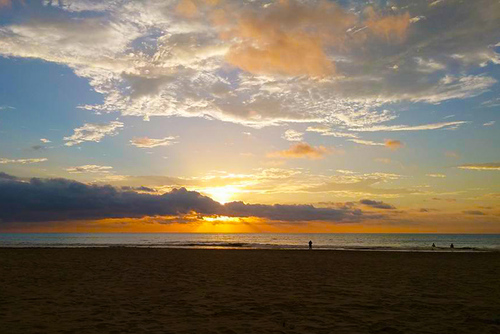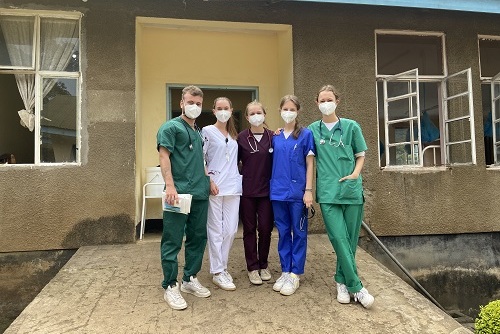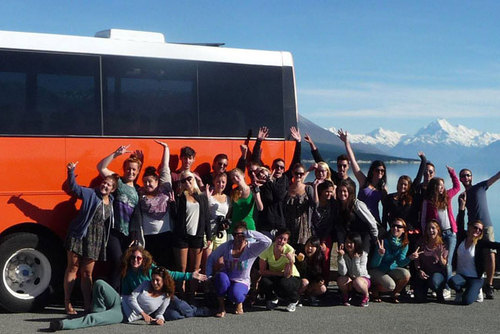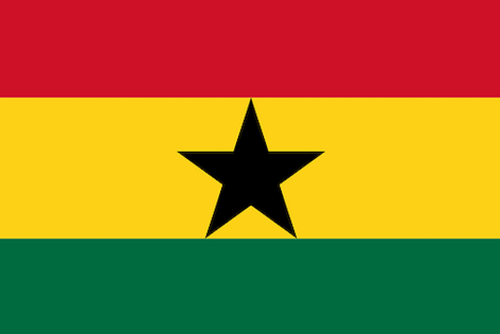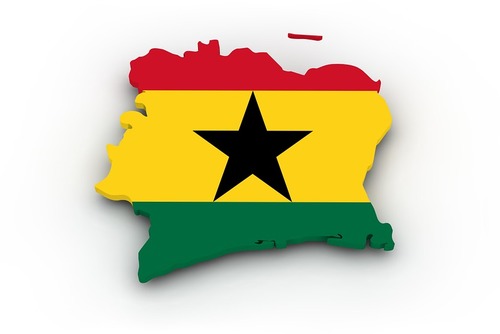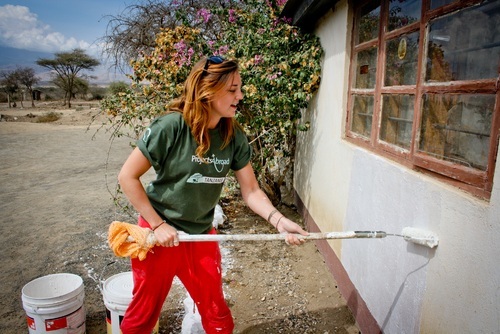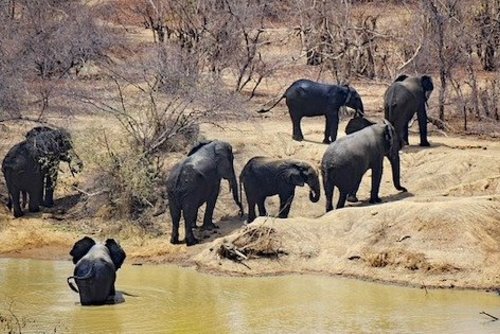But not that many tourists visit Ghana, and most people don't have a clue what to expect.
If you are wondering what the country is like to travel in we have put together 5 things on what to expect to help you get prepared.
1. 'Obroni!'
If you are white and in Ghana, the chances are that people will refer to you as ‘obroni’, which simply means ‘white person’.
In certain places, children will even shout it to you in the street to get your attention. Don’t be alarmed though; it isn’t meant in an aggressive way.
The children are usually only shouting after you to wave at you. A simple smile and a wave back will often see their little faces light up. By the end of your trip, you’ll likely find the term ‘obroni’ to be more endearing than anything else.
2. Taxi Prices
Taxis in Ghana are incredibly cheap as you just pay from junction to junction, rather than a direct fee for how far you have travelled.
You shouldn’t be paying more than 2-2.50 Ghana cedi at the maximum for a taxi, but be aware that taxi drivers will sometimes attempt to charge you more as you aren’t local to the area.
You also only pay for your seat in a taxi, not the taxi itself, so you can expect the driver to pick other people up on the way, or if you are at a taxi station, you will usually have to wait until all the seats are full which can take up to 10-15 minutes.
Note: Taxi prices may differ depending on where you are in Ghana.
3. GMT - 'Ghana Man Time'
In Ghana, there is a term affectionately known as ‘Ghana Man Time’.
This refers to the fact that if you make arrangements with a Ghanaian for a certain time, it is likely that they will show up anytime from the time you agreed upon to up to two hours, maybe even longer, after this.
While it can be frustrating at times, it is part of the culture and you will likely have to plan a way to work around this. You will find if you book a structured experience e.g. through a volunteer program in Ghana they will be able to arrange excursions so this only really related to if you want to explore the country independently.
4. Cultural Differences
It would be impossible to list all the cultural differences you will encounter whilst volunteering or traveling in Ghana, and I wouldn’t want to, as finding these out is a big part of your experience.
However, here are just a couple of differences to get you started. Although nobody will say anything to you, it is seen as strange if you eat food whilst walking down the street, so it is probably best to save it until you sit down somewhere.
It is frowned upon and not seen as acceptable for women to smoke, especially in public places. This is because as an adult, you are seen as a role model to children and should set a good example of how to behave and act within the community.
It isn’t common to see men smoking in public either.
5. Barter for Goods
Like many other countries around the world, bartering is common in Ghana. While larger shops, such as supermarkets, will stick to a fixed price, market stalls selling everything from fruit to clothes to souvenirs will be open to negotiating a fair price for you to pay, so don’t be afraid to try it!
Related Pages

